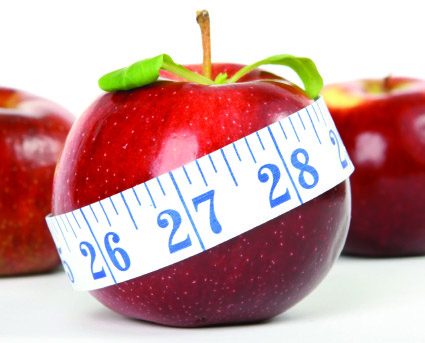When it comes to nutrition advice, there is a lot of misinformation out there coming from people who are not qualified health professionals (and even from some who are). New trends and health-related buzzwords spread quickly thanks to the internet and social media, and these trends are often not evidence-based.
One popular diet trend now is "clean eating". What is clean eating? It is a very vague term that means different things to different people, with varying levels of extreme. In general, clean eating includes not eating processed foods and getting foods from a local source. Included in this way of eating are that foods must be organic, and produce must be fresh and raw. While this may sound like a great way of eating, it may not be as healthy as it seems.
Cutting out all processed foods can mean cutting out important whole grains, such as oats, rice, and the products that are made from these and other grains. Whole grains are a great source of carbohydrate, which is the body's preferred source of fuel, as well as fiber and B-vitamins.
It's great to be able to get foods from a local source, but this may not always be possible. It's great to incorporate fresh fruits and vegetables, which provide important vitamins, minerals, antioxidants, and fiber. But, frozen and dried produce are healthy choices as well. Some cooking methods, like sautéing, can actually increase nutrient absorption from some vegetables. It's great to choose foods that are organically farmed, but this may not always be possible due to availability or cost.
It's ok to aim to eat healthily, and it's ok to be flexible with food choices. Healthy eating does not have to be what the internet defines as "clean eating". Healthy eating can be fueling your body regularly throughout the day with a variety of foods that make up a balance of all food groups. Trying to follow strict food rules can be a slippery slope that for some could lead to Orthorexia. The term Orthorexia, coined in 1998 by Steven Bratman, MD, means an obsession with proper or "healthful" eating. It is a disorder rooted in food restriction in which the quality of food is severely restricted, as opposed to the quantity. Orthorexia is not formally recognized in the Diagnostic and Statistical Manual, but awareness of this disorder is increasing. It starts with the intention of eating healthier but becomes extreme to meet the most "pure" diet and can lead to the elimination of entire food groups.
This obsession takes up a lot of time and energy, interferes with one's social life, negatively impacts one's relationship with food, and can lead to malnutrition. The National Eating Disorders Association (NEDA) lists warning signs and symptoms of Orthorexia:
Compulsive checking of ingredient lists and nutritional labels
An increase in concern about the health of ingredients
Cutting out an increasing number of food groups (all sugar, all carbs, all dairy, all meat, all animal products)
An inability to eat anything but a narrow group of foods that are deemed 'healthy' or 'pure'
Unusual interest in the health of what others are eating
Spending hours per day thinking about what food might be served at upcoming events
Showing high levels of distress when 'safe' or 'healthy' foods aren't available
Obsessive following of food and 'healthy lifestyle' blogs on Twitter and Instagram
Body image concerns may or may not be present.
The warning signs may indicate a problem, and it is not necessarily an eating disorder. If you have concern about yourself or a loved one, contact Focus Treatment Centers at 423-888-0516 for a complimentary assessment or visit us at FocusTreatmentCenters.com.
You deserve to have a healthy relationship with food and enjoy a variety of foods without experiencing unjustified guilt. It's never to too late to make a change that could positively impact your life!
Courtney Phifer is a Registered Dietician on staff at Focus Treatment Centers and additionally sees patients privately at her office in downtown Chattanooga (423-402-0043).
MORE INFORMATION
Focus Treatment Centers staff can be reached at 423-888-0516 for a complimentary assessment or visit FocusTreatmentCenters.com
Noteworthy:
What is clean eating? It is a very vague term that means different things to different people, with varying levels of extreme.

